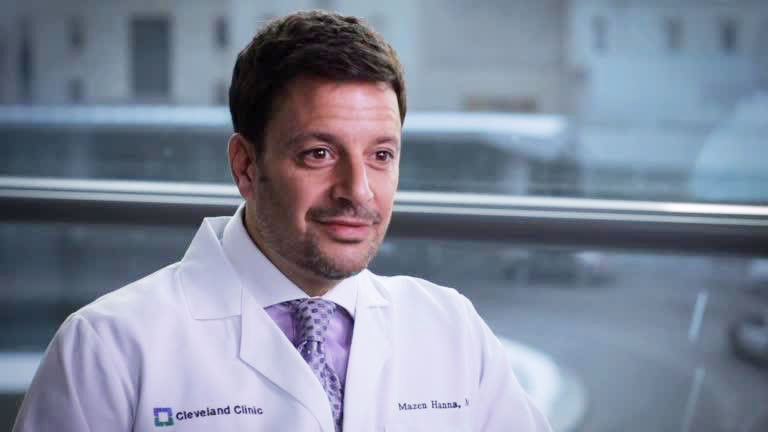Tafamidis treatment of transthyretin mediated amyloidosis (TTR) approved by FDA

Subscribe: Apple Podcasts | Buzzsprout | Spotify
Tafamidis treatment of transthyretin mediated amyloidosis (TTR) approved by FDA
Podcast Transcript
Announcer: Welcome to Love Your Heart, brought to you by Cleveland Clinics Sydell and Arnold Miller Family Heart and Vascular Institute. These podcasts will help you learn more about your heart, thoracic and vascular systems, ways to stay healthy, and information about diseases and treatment options. Enjoy.
Dr. Hanna: So, this week, on May 6, 2019, we got some very exciting news. The medication called Tafamidis, that's T-A-F-A-M-I-D-I-S, was approved by the FDA for the treatment of ATTR cardiac amyloidosis. This is the first FDA approved treatment we have for patients with TTR amyloidosis who have heart involvement. So, this is historic. We were with the clinical trials from the beginning, spanning back to at least six years ago, seven years ago. To see all the brave patients who enrolled in this trial, which included placebo treated patients, but that we finally have an FDA approved medication for this disease is really exciting.
I think that now all these patients who are diagnosed with this disease, they're going to have an option. Furthermore, we're hoping that this option will be affordable through assistance programs. We don't know exactly how much this is going to cost for the individual patient, but again, we're very hopeful that this is going to be made affordable. The good news is now that we have Tafamidis, we may have more medications coming in the next couple years for TTR cardiac amyloidosis. There's going to be clinical trials with other agents that work directly on the liver, and then every year we're thinking about newer ways to treat this disease. But indeed, May 6, 2019 will be forever etched in my brain, because it was actually quite emotional for me to see, and it's very emotional for our patients to finally see an FDA approved medication for TTR cardiac amyloidosis. There's no difference between the traditional drugs, because there were no traditional drugs.
Yeah. So, Tafamidis binds the TTR protein. It's called transthyretin. It binds it and prevents it from breaking apart. That protein breaking apart is the initial step to forming amyloid deposits in the heart and/or nerves. So, Tafamidis is what we call a stabilizer. It's stabilizing that protein. The large trial that showed its effectiveness in TTR cardiac amyloidosis was called the ATTR-ACT Trial, A-T-T-R dash A-C-T. It was published in the New England Journal in the fall of 2018. It's 441 patients. About more or less half got placebo, and more or less half got Tafamidis, and they followed patients for two and a half years. At the end of two and a half years there was a significant survival benefit for those patients who were on the Tafamidis versus those on placebo. There was overall less hospitalizations for the people on Tafamidis, and their quality of life declined much less slowly than it did in the placebo group.
What's important to tell patients about this is that this will slow down the disease considerably. It doesn't cure the disease. It doesn't reverse the disease. But the results of the ATTR-ACT Trial were quite impressive. They actually exceeded our expectations. So, I think that the survival of these patients will significantly improve with this medication. Once further medications become available, and in my personal opinion combination therapy with Tafamidis will be the way of the future, and in these instances we may be able even to improve the situation, not just slow it down. But we're very excited about this.
Announcer: Thank you for listening. We hope you enjoyed the podcast. We welcome your comments and feedback. Please contact us at Heart@CCF.org. Like what you heard? Please subscribe and share the link on iTunes

Love Your Heart
A Cleveland Clinic podcast to help you learn more about heart and vascular disease and conditions affecting your chest. We explore prevention, diagnostic tests, medical and surgical treatments, new innovations and more.


